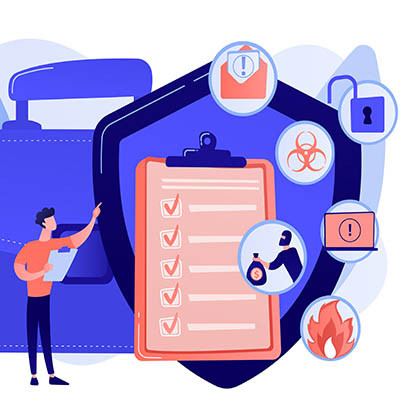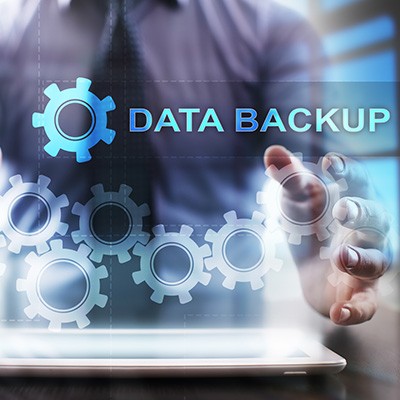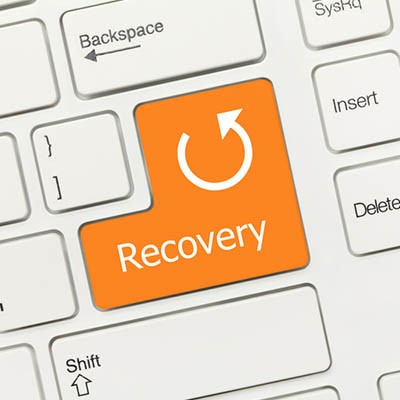Despite its undeniable value, data is incredibly fragile. The loss of critical information can spell disaster for a company, making data backup a paramount concern. In this article, we'll explore why data backup is so important for businesses and why it should be at the forefront of every organization's IT strategy.
Indevtech Blog
Business continuity is one of those things that can easily be overlooked as most businesses do whatever they can to focus on the job at hand. Unfortunately for the unprepared business, there are a lot of situations that can happen that can interrupt its ability to function optimally. Having continuity strategies in place can save organizations a lot of time and money as they are able to get back up and running effectively quicker.
Cybersecurity is quickly becoming one of the leading risks that businesses of all shapes and sizes face. Cyberattacks are expensive, they risk your continuity, and they could even get you in hot water when it comes to compliance regulations, local and state regulations, and virtually any entity you are associated with.
It might feel like this is an insurance company’s way to nickel and dime business owners, as premiums will continue to rise, especially for businesses that aren’t meeting certain requirements, but the truth is, with so much risk, the entire world needs to adjust for cybersecurity.
Businesses have a lot of troubles to manage, one of which is their technology breaking down and interrupting their operations. You have options to ensure these circumstances do not influence your operations to the degree they once may have. Let’s discuss some of the ways you can address malfunctioning IT before it impacts your productivity.
How seriously does your business take data backup and disaster recovery? You might not be able to predict the future or what might occur, but you can at least prepare for it to mitigate the damage it could potentially bring about. Today, we want to share some of the best practices you can implement to combat even the worst disaster scenarios your organization might encounter.
Look, nobody likes picturing the worst-case scenario that could befall their business—even doing so might feel a bit like memorizing a divorce attorney's number as you write your wedding vows. However, failing to have some strategy in place could very well lead to your business’ downfall. What does it take to properly plan and prepare for the possibility of a disaster, and the associated recovery you’ll have to undergo?
Bad things happen. If your business fails to plan for the worst, when something terrible does happen, you could be looking at disaster. If you have a comprehensive continuity plan in place, however, you have a fighting chance. Let’s discuss some of the elements you absolutely need to address when making your business’ continuity plan.
When it comes to your business, what do you prioritize? Do you focus more on security, or do you focus more on the business continuity side of things? The reality here is that both are of critical importance. Unfortunately, however, it seems that many executives feel like the current circumstances surrounding the ongoing COVID-19 pandemic have led them to prioritize one over the other.
Business continuity is difficult to talk about for some business owners, specifically because no one likes to talk about the worst case scenario. What would you do if your business were to suddenly go through a disaster? Do you have a plan in place? If not, let’s talk about that. Here are some aspects of business continuity that you must consider. Remember; your company’s future depends on it!
Each March 31st, we like to observe World Backup Day, where we educate people about the benefits of having a comprehensive backup plan in place. This year, with tens of thousands of people being affected by Coronavirus, business has ground to a halt in large portions of the world. Today, we are going to look at the business continuity strategy and how, in times like these, you’ll be glad you have your data backed up.
Businesses don’t like to spend money on solutions they don’t need. You’d rather make sure you hit payroll, dish out Christmas bonuses, and have something left over to grow. With this in mind, a business that doesn’t properly back up their data might not get a chance to make payroll, dish out bonuses, or even keep their doors open. Data backup isn’t something to skimp on, because when the time comes, it can mean disaster for your business.
Data recovery is a major consideration that every organization that depends on data has to plan for as a part of their business continuity strategy. Since there are so many ways that businesses can lose data, there needs to be a plan to recover data for any possible reason. Today, we will take a different look at operational data loss and talk about how your organization should consider strategizing data recovery.
Take a moment to imagine the absolute worst disaster scenario for your business. Does it involve a catastrophic event destroying your office building? Does it include key staff being absent from the office for extended periods of time? Does it include your business suffering from data loss or security breaches?
Running a business requires the ability to stay in control, especially when others couldn’t. However, there are some situations--like major weather events--that simply will not be controlled. In cases like these, you need to make sure your business is prepared to withstand the worst. A business continuity plan can help you do so.
It’s every business owner’s worst nightmare; they wake up to find out that their entire data infrastructure has been wiped out by some unexpected natural disaster or hacking attack. The only way to guarantee that your business’s future remains intact is to have some sort of data backup and recovery system, just in case of the worst.
Is your organization still relying on antiquated tape backup to keep your data safe? A more reliable, less time-consuming alternative known as image-based, or “snapshot” backup, could change the way that you look at disaster recovery. In fact, image-based backup has the potential to optimize your business’s data continuity.

























